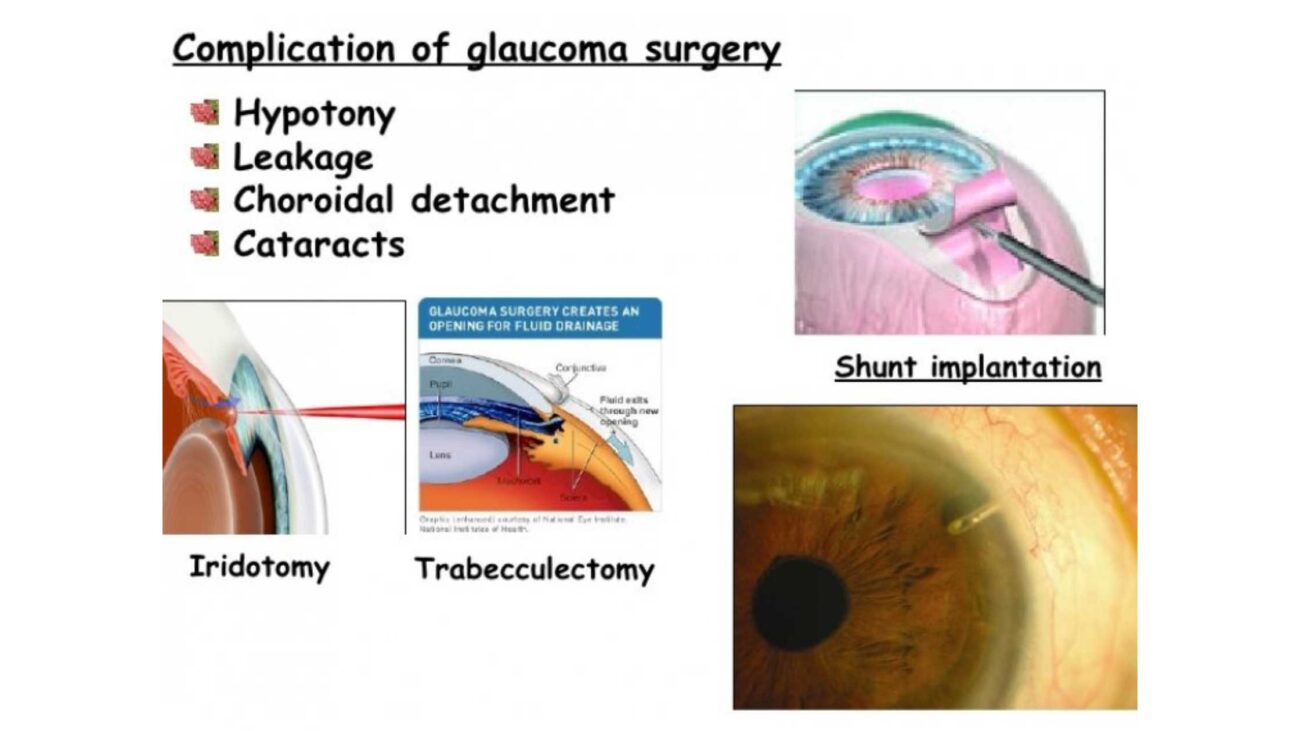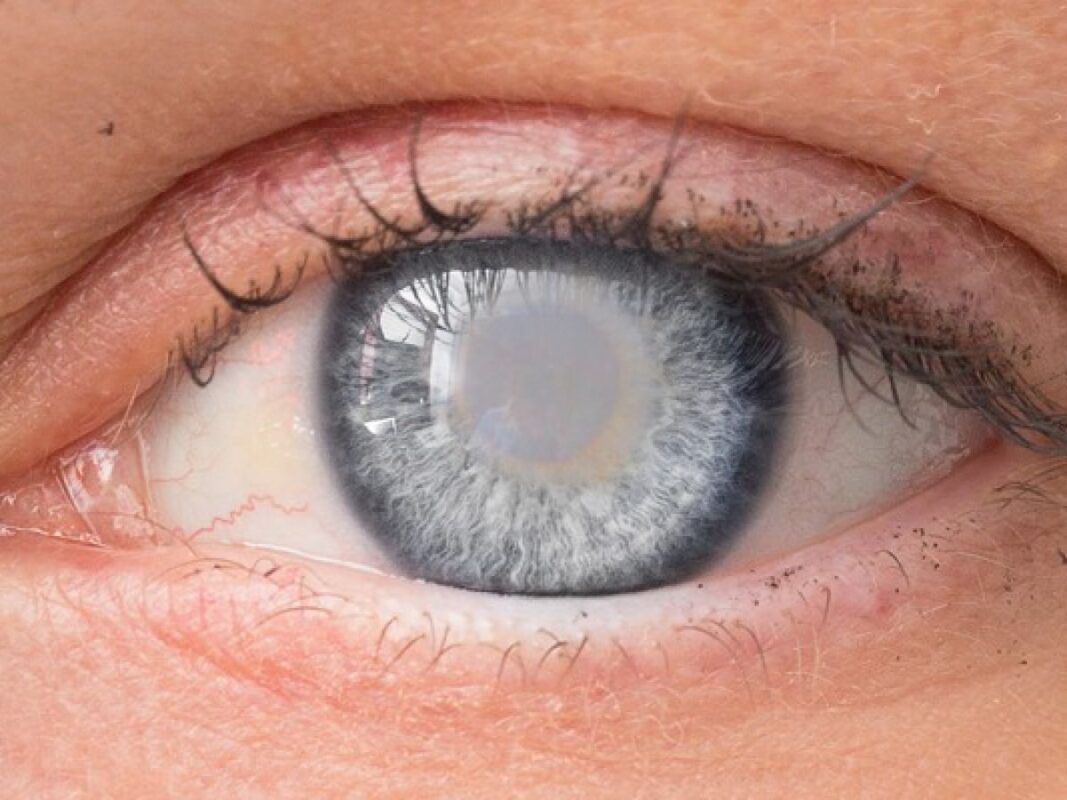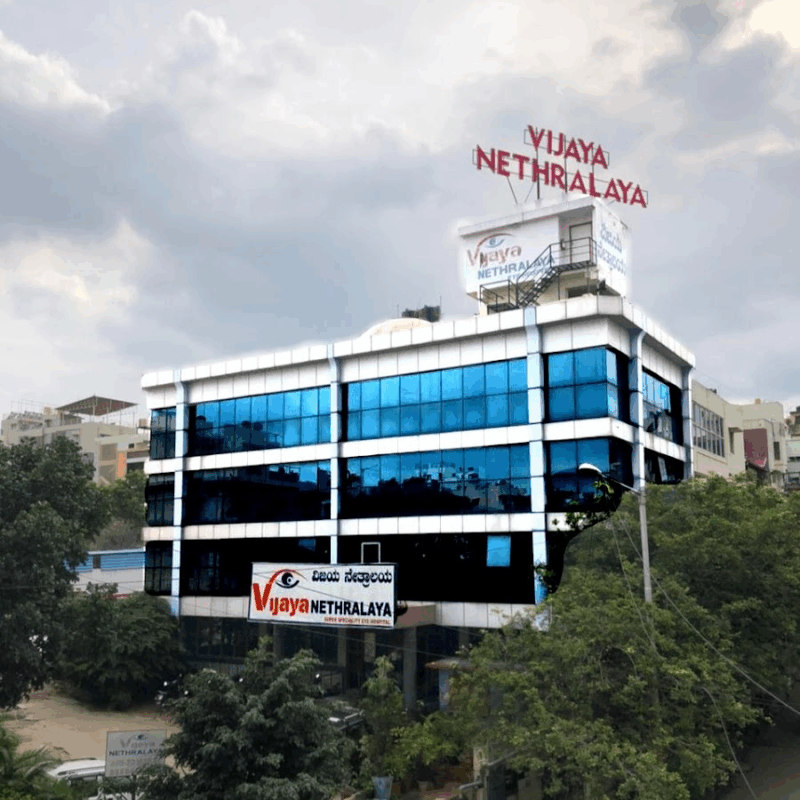Glaucoma is a serious eye condition that affects millions of people worldwide. While it’s often associated with elevated intraocular pressure (IOP), there’s more to this condition than meets the eye. In this article, we’ll delve into the complications of glaucoma, shedding light on its various aspects and exploring how it can impact a person’s vision and overall quality of life.

1. The Silent Thief of Sight: A Brief Overview of Glaucoma & complications of glaucoma
Glaucoma is often referred to as the “silent thief of sight” because it gradually damages the optic nerve without causing any noticeable symptoms in the early stages. This is primarily due to the slow progression of the condition, which can lead to delayed diagnosis and treatment.
2. Elevated Intraocular Pressure: The Primary Culprit
One of the primary complications of glaucoma is elevated intraocular pressure (IOP). This increased pressure within the eye can damage the optic nerve over time, leading to vision loss. While high IOP is a key risk factor for glaucoma, not all cases of the condition are associated with elevated pressure.
3. Vision Loss: The Devastating Consequence
The most significant complication of glaucoma, a progressive eye condition, is vision loss. As the optic nerve deteriorates over time, it can result in peripheral vision loss, subsequently leading to tunnel vision. If left untreated, this condition can progress to central vision loss, severely impacting a person’s ability to perform daily activities and navigate their surroundings.
4. Open-Angle vs. Angle-Closure Glaucoma: Different Complications
There are different types of glaucoma, including open-angle and angle-closure glaucoma. While open-angle glaucoma develops gradually and is often painless, angle-closure glaucoma can cause sudden and severe symptoms such as eye pain, headaches, and blurred vision.
5. Complications Beyond the Eye: Psychological Impact
The complications of glaucoma extend beyond physical symptoms. The fear of vision loss, coupled with the challenges of managing the condition, can lead to anxiety, depression, and decreased overall quality of life. Support and counseling are important aspects of holistic glaucoma care.
6. Managing Glaucoma: Treatment Complications
Treating glaucoma comes with its own set of complications. While medications, laser therapies, and surgical interventions can help lower IOP and slow down the progression of the disease, finding the most effective treatment for each patient can be complex and may involve trial and error.
7. Compliance Challenges: Adhering to Treatment Plans
One of the lesser-discussed complications, however, is patient compliance. In the case of glaucoma treatment, which often requires the consistent use of medications and regular follow-up appointments, failure to adhere to the prescribed treatment plan can exacerbate the condition and significantly increase the risk of vision loss.
8. The Role of Genetics: A Complex Connection
Genetics play a significant role in glaucoma. Certain genetic factors can predispose individuals to developing the condition. Understanding the genetic component is crucial for early detection and personalized treatment approaches.
9. Glaucoma and Lifestyle: Navigating Daily Challenges
Living with glaucoma involves making lifestyle adjustments to minimize complications. Activities such as driving, reading, and even social interactions can be impacted. Learning adaptive techniques and seeking support can help individuals maintain their independence.
10. Vision Rehabilitation: Overcoming Complications:
For those already experiencing vision loss due to glaucoma, vision rehabilitation programs can make a profound difference. These programs teach adaptive strategies, assistive technologies, and provide emotional support to enhance the quality of life for those with compromised vision.
11. Glaucoma Research: Paving the Way for Future Treatments
Ongoing research is essential for uncovering new insights into glaucoma and developing innovative treatments. From neuroprotective therapies to advanced surgical techniques, the medical community is working tirelessly to improve the outlook for individuals living with glaucoma.
12. The Importance of Regular Eye Exams: Early Detection Matters
Early detection remains the key to preventing the complications of glaucoma. Regular comprehensive eye exams can help identify the condition in its early stages, allowing for timely intervention and management.
13. Glaucoma and Coexisting Conditions: A Complex Web
Many individuals with glaucoma also have other health conditions, such as diabetes and hypertension. Managing these coexisting conditions is crucial, as they can impact the progression of glaucoma and its complications.
14. Empowerment Through Knowledge: Spreading Awareness
Raising awareness about the complications of glaucoma is vital. Education empowers individuals to take proactive steps in managing their eye health, seeking early treatment, and advocating for their well-being.
Author Details:
Dr. Sushruth Appajigowda holds a prominent position as a Cornea, Cataract, Glaucoma, and LASIK Surgeon in Bangalore. He serves as the chief Cataract and Refractive surgeon at Vijaya Nethralaya Eye Hospital, Nagarbhavi Bangalore. Renowned as one of the finest LASIK surgeons nationwide, he brings with him over 12+ years of experience across multiple LASIK platforms, including ZEISS, ALCON, SCHWIND, AMO, and Bausch and Lomb. Having successfully conducted over 5000 LASIK procedures, Dr. Sushruth holds the title of a Certified Refractive Surgeon and a Fellow of the All India Collegium Of Ophthalmology. Furthermore, he stands as a distinguished speaker at various National and International Forums, using his expertise to guide you in selecting the most suitable procedure based on your health requirements.

Conclusion: Navigating the Challenges of Glaucoma:
In conclusion, glaucoma is more than just an eye condition-it’s a complex web of complications that can impact various aspects of a person’s life. From vision loss to emotional challenges, managing glaucoma requires a multidisciplinary approach. By staying informed, seeking support, and prioritizing regular eye exams, individuals can navigate the challenges posed by glaucoma and enjoy a better quality of life.
FAQs About Glaucoma Complications:
1. Can glaucoma only cause vision loss, or are there other complications to be aware of?
Glaucoma can lead to various complications beyond vision loss, including psychological distress, lifestyle adjustments, and coexisting health conditions.
2. Is everyone with glaucoma at risk of going blind?
While glaucoma can lead to vision loss, not everyone will go blind. Early detection and proper management can significantly reduce the risk of severe vision impairment.
3. How can I support a loved one dealing with glaucoma-related challenges?
Offering emotional support, helping with treatment adherence, and participating in vision rehabilitation programs can make a positive impact on a loved one’s journey.
4. Are there any preventive measures I can take to reduce my risk of developing glaucoma?
While you can’t completely prevent glaucoma, leading a healthy lifestyle, having regular eye exams, and managing coexisting health conditions can lower your risk.
5. What does the future hold for glaucoma treatment?
Research is ongoing, and the future of glaucoma treatment looks promising, with advancements in neuroprotection, surgical techniques, and personalized medicine on the horizon.











